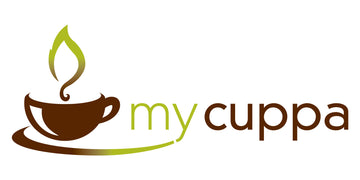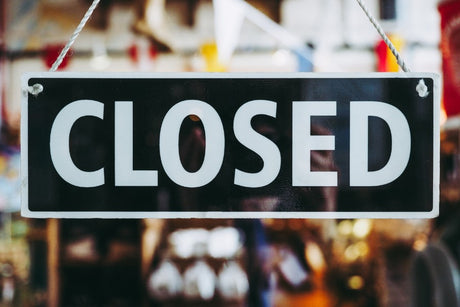I bet you have wondered more than once why there seems to be a strange and, at times, perverse correlation between fine dining and crap coffee?
It seems expensive, and so-called premium restaurants can't help themselves from making bad or stupid decisions with their coffee strategy.
It's occurring in their strange ideas of sourcing (which brand of coffee to use) and in poor execution (unskilled or inexperienced baristas).
It defies any reasonable logic and, at the same time, contradicts everything a premium establishment stands for.
Nowhere is this more obvious than in Australia, where coffee standards are super high, along with customer expectations that are even likely higher.
Boy, we thought we had seen it over the last 30 years.
One aspirational restaurant served us instant coffee to finish our $140/head dinner.
At a fundraising event, they used stale supermarket coffee served badly by the poor, inexperienced wait staff on a $250 degustation menu.
Then we had the pod and capsule coffee in the multi-Chef's Hat awarded venue.
But the award goes to the large commercial Australian coffee brand (also available in the discounted section of supermarkets) that desperately links itself to upmarket restaurants by offering generous incentives and rebates that are too extravagant for chefs and owners to refuse.
Let's not forget those food awards that use sponsorship with a bunch of backroom hustling and pressure that chefs cave in for fear of missing out on "positive ranking" in the guides.
More than one awarded chef has "outed" the impact and consequences of not "playing along" with the party line.
Some chefs now boycott or dismiss award rankings as it seems they inevitably might one day come with a "catch" to use a particular brand of coffee known for mediocre quality and taste.
It's typical for the responsibility of selecting the coffee to be given to a part-time beverage manager, who must also know a range of other products and services needed for the venue while carrying out their regular job duties.
Upmarket venues are more concerned with the quality of their food ingredients and push coffee to the bottom of the priority list.
Making matters worse is the fundamental lack of training for staff expected to prepare espresso-style coffees - sometimes, it's a case of just closing their eyes and hoping for the best.
It's a serious issue when beverage managers require their coffee suppliers to provide unlimited training to a constantly changing and inexperienced staff at the venue.
There can be significant issues in the future due to the disconnect caused by this.
I have corrected any spelling, grammar and punctuation errors.
They need resource models like cafes where a trained barista (or backup) is placed on the machine to ensure the quality of the coffee meets a basic or minimum standard throughout the service period.
Letting just anyone make a coffee is just asking for trouble and risking ire from a high-paying customer.
Why, then, should they be shocked to receive a negative review?
Restaurants employ staff to perform many different functions besides just serving tables, so when preparing a coffee order, there can be high anxiety levels from inexperienced teams under pressure to perform.
Frequently, coffee machines are not used often enough, leading the coffee sitting in the grinder to be inadvertently pre-grounded in a doser-style system by unaware staff.
As a result, the coffee is more or less stale when staff members attempt to prepare a beverage.
This situation is comparable to fighting with both hands tied behind your back.
On one side, you have the management blaming the supplier for not providing enough training, and on the other side, you have the supplier frustrated at the venue for not retaining trained or skilled staff.
Nobody wins.
Regardless of any way you may wish to look at it, there is no excuse to charge ultra-high pricing for a dining experience and treat the coffee as a less important afterthought.
Although there has been significant improvement in recent years.
A recent discussion with a colleague at another coffee company reminded me of the perils in dealing with corporate organizations that promote themselves as the "finest and premium" yet act with contradictory behaviours in sourcing ingredients, products and solutions.
His company had successfully supplied part of a premium dining group for a few years.
Suddenly, he was notified they could no longer purchase his products and services due to a corporate decision to use a large overseas coffee brand as part of a standardization initiative throughout the group.
Fair enough, it seems reasonable to implement standards and rationalize suppliers.
Still, as a venue group that markets itself as ultra-premium across Australia's dining segments, they chose a coffee partner that doesn't even roast their coffee in Australia.
Instead, their chosen coffee partner sources a range of products from a contracted coffee-roasting sausage factory to satisfy the "local and fresh" equation, which you could safely guess is designed around cheap, mass-production units.
This coffee was advertised as a premium product through new packaging design and clever marketing strategies.
It asks how far reputations can be stretched before they snap.
After scandals involving systemic wage fraud at premium dining venues around Australia justified as "normal and expected in hospitality, everyone is doing it", or the weak excuse rolled out that it was just a "simple administrative oversight".
These are all cunning and calculated exploits from shrewd, experienced dining operators gaming a system until they got caught red-handed.
They continue to cut back until something breaks; only then do they address it.
We are indeed entering dark times for hospitality when business models rely upon recruiting cheaper labour and using the perception of threat or risk of cancelling work visas over the demands of punishing work schedules or lower pay.
The cheaper labour in the back room and cut-price ingredients must translate to a better value menu item in these expensive establishments.
Australian consumers, being a canny mob, can't be easily fooled.
Consumers are smart, and many are wary of the free license used by premium and luxury brands to over-charge and under-deliver upon their promise of a "premium experience" - you can only get away with it for so long.
In the current economy of stagnant real wage growth, real estate price volatility and tougher access to credit, the slowdown of discretionary consumer spending will see more of these premium pretenders fall upon their fake swords.









